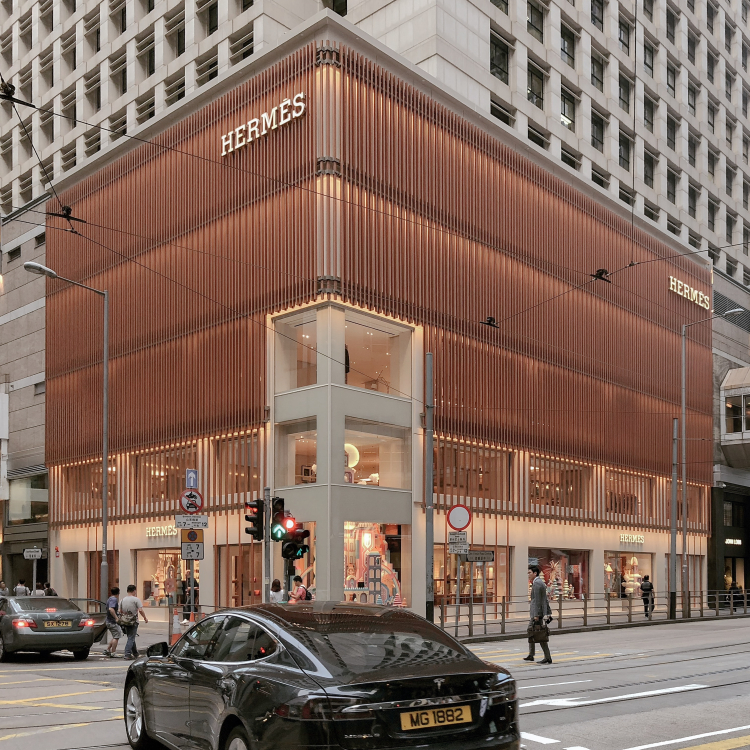How Hermès Became the New Shein

Social media has been an integral part of the lives of billions of consumers since its advent. With the introduction of influencer marketing affecting the industrial, cultural, and economic conditions in the fashion industry, it is, arguably, being democratized; “a phrase employed when a shift occurs that results in fashion becoming accessible to, or influenced by, the masses.” With this transition, luxury fashion, a once secluded market reserved for the elite, has become a space where products are increasingly hyper-consumed.
In the early 2000s, fashion influencers prompted the idea of a shoppable life by using social media technologies to create a seamless shopping experience for their conveniently segmented audience. Audience members have been shown to follow specific influencers due to their trustworthiness, level of expertise in a certain domain, and inspirational attributes. The influencer-consumer relationship is driven by a level of relatability. By pairing informative and aspirational content with intimate details of their lives, consumers equate their recommendations to that of a close friend. Today, we see fashion influencers posting content multiple times a day, and whether the focus is more personal or educational, luxury fashion is highlighted amongst most, if not all, posted content. A study on young adults’ motivations for status in terms of their luxury fashion purchase intentions found that with social media and fashion influencers as external motivations, “luxury products are purchased for their symbolic and social value rather than their functional utility.” They serve as symbols in two ways: by expressing social standing and status to signal group membership; and as self-expressive symbols to represent one’s unique qualities and to signify interpersonal relationships.”
In interviews with a fashion student at the American University of Paris and a corporate sales employee at Steve Madden in New York, both agreed that purchasing and owning luxury fashion products makes them feel a sense of status, belonging, identity, and elevation. Both also said that luxury products are more attainable to them now because brands have created more inexpensive, entry-level products and because multiple fashion influencers posting about products builds brand awareness. Labels such as Hermés, Chanel, and Dior have introduced jewelry items across a range of price points, allowing increased access to own a product from the brand. With influencers sharing this information, consumers’ desire for and consumption of luxury has increased.
Although fashion influencers are not the sole reason for the increased luxury fashion purchases, their savvy use of social media to influence consumers is undeniable. Both interviewees expressed their affinity for luxury products and intent to purchase more items in the near future to add to their luxury product collections. They also expressed feeling more confident in their purchase decisions because of fashion influencers. While the Steve Madden employee agreed that fashion influencers affect which brands and products they consume and that they look to influencers for reviews and opinions before purchasing, the AUP student, while hesitant, responded that influencers do not affect which brands and products they consume and while before, looking to an influencer was a sense of validation, they do not turn to them for opinions before purchasing now that they have a deeper understanding of their own sense of style.
The perception of luxury as an ‘investment’ is also changing, and the consequence of this is often waste and regret. This was confirmed in my own research, with both interviewees admitting they had made multiple luxury purchases they regretted because they wanted to own something from a designer brand, even though they rarely use it. They added they had also both bought a luxury item because it was a limited edition and made them feel special, even if they didn’t like the product.
Not only are consumers experiencing this form of buyer’s remorse for luxury products, but so are the influencers who are originally boasting these products online. A few years ago, a trend started on YouTube where influencers post their top luxury purchases they regret and what they should have bought instead. While these videos might save you from purchasing a product you’ll regret, they are still increasing consumer desire for alternative products posed as products these influencers wish they purchased instead.
It is up to us to consume consciously and not get hypnotized by online images of Birkin collections, or the idea that if you own a product from a designer brand, you belong to a ‘special group.’
Before purchasing, fall in love with the product because it means something to you, not the rest of the world.







